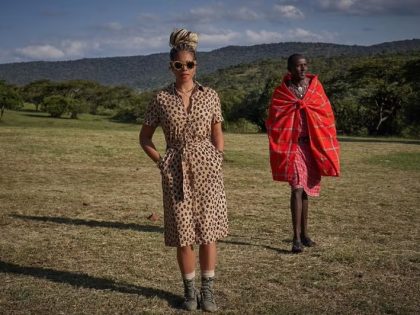
The global gateway to nowhere
Europe’s flagship development plan promises investment and partnership—but delivers debt, displacement, and old colonial patterns dressed up in green.

Europe’s flagship development plan promises investment and partnership—but delivers debt, displacement, and old colonial patterns dressed up in green.

Cape Town’s digital nomads chase cheap luxury and scenic backdrops—but behind the matcha lattes and “social impact days” lies a deeper story of economic power, displacement, and global inequality.

Recent celebrity investments in the continent raises the question: Who is it really for?

Western donors are cutting budgets, but the aid model they built—rooted in control, dependency, and depoliticization—still shapes Africa’s development.

A US-backed infrastructure project in the DRC is framed as development, but history suggests it’s just another pipeline for foreign powers to profit from Congo’s riches.

The humanitarian industrial complex should be dismantled—but not by a billionaire-backed administration with no plan beyond abandonment.

In Cuba, new forms of marginalization and racism have surfaced, but the dream of a good society based on the core principles of “buen vivir” for its people has not died.

Twenty-one years after Liberia’s political elite acquiesced to “negative peace,” the US now champions the fight against impunity. Except when their own companies are involved.

While it might be cathartic to compare Elon Musk’s tech firms to apartheid-era mines, the connection between ex-South Africans and American capitalism is complicated.

To navigate multipolarity, the continent needs a common narrative that strategically mediates its conversations with China and other world powers.

In South Africa, a popular beauty contest is revealing the specter of ultranationalism and anti-blackness.

Caught between pro-West loyalists and anti-West populists, West Africa’s regional bloc has come apart.

BBC’s new documentary about T.B. Joshua’s human rights abuses has stirred debate about the British broadcaster’s intentions.

A new HBO documentary exposes the harm caused by unqualified aid workers in Uganda, but its attempts to complicate the narrative ultimately fall flat.

We often hear from Western donors that Africa suffers from food ‘scarcity.’ The real problem is the exploitation of African land, labor, and knowledge.

France is not a new problem for Africa. Since the 19th century, it has stood in the way of the continent’s self-determination.

The full recognition of the neocolonial structure of international economic and global health relations demands much more radical political alternatives.

Lest the WHO forget, containing infectious diseases is less about culture than the racist structure of international relations that condemns countries like Haiti to cycles of epidemics.

What do Europeans do when they hear the war waged by the government of Ethiopia has killed more people than the war in Ukraine?

The excessive reporting of the interplay between non-African powers in the Sahel—however crucial it may be to understand regional dynamics—betrays a Western-centric bias in international news coverage.